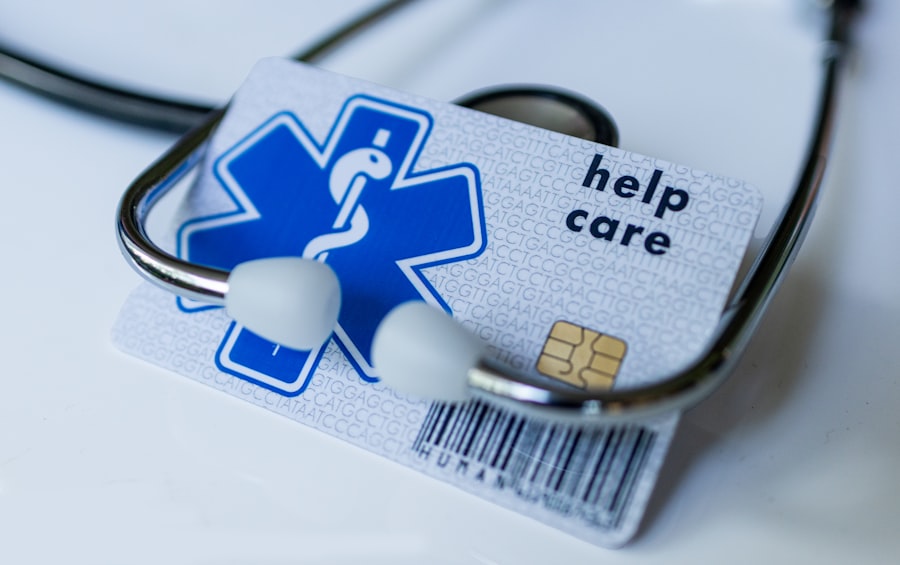The healthcare landscape has undergone a significant transformation in recent years, driven largely by advancements in technology and the increasing demand for more efficient, patient-centered care. At the forefront of this evolution is the concept of digital agency, which refers to the ability of healthcare organizations to leverage digital tools and platforms to enhance their services and improve patient outcomes. Digital agency encompasses a wide range of applications, from telemedicine and electronic health records (EHRs) to mobile health apps and patient engagement platforms.
As healthcare providers strive to meet the expectations of a tech-savvy population, understanding the role of digital agency becomes essential. Digital agency in healthcare is not merely about adopting new technologies; it is about fundamentally rethinking how care is delivered and experienced. This shift requires a cultural change within organizations, where stakeholders—from administrators to clinicians—embrace digital solutions as integral components of their practice.
The integration of digital agency into healthcare systems can lead to improved patient experiences, streamlined operations, and ultimately, better health outcomes. As we delve deeper into the various facets of digital agency in healthcare, it becomes clear that its impact is profound and far-reaching.
Key Takeaways
- Digital agencies play a crucial role in transforming healthcare through technology-driven solutions.
- They enhance patient care by improving accessibility, personalization, and engagement.
- Digital tools increase healthcare efficiency by streamlining workflows and reducing administrative burdens.
- Improved communication and collaboration among healthcare providers lead to better coordinated care.
- Leveraging data analytics helps in making informed decisions while addressing security and privacy is essential for trust.
The Impact of Digital Agency on Patient Care
Digital agency has revolutionized patient care by placing patients at the center of their healthcare journey. With the advent of telehealth services, patients can now access medical consultations from the comfort of their homes, eliminating barriers such as transportation and time constraints. For instance, a patient living in a rural area can consult with a specialist located hundreds of miles away without the need for travel.
This accessibility not only enhances patient satisfaction but also ensures that individuals receive timely care, which is crucial for managing chronic conditions or acute health issues. Moreover, digital agency empowers patients through tools that facilitate self-management of their health. Mobile health applications allow users to track their symptoms, medication adherence, and lifestyle choices, fostering a sense of ownership over their health.
For example, diabetes management apps can provide real-time feedback on blood sugar levels and dietary choices, enabling patients to make informed decisions about their care. This shift towards patient empowerment is supported by research indicating that engaged patients are more likely to adhere to treatment plans and achieve better health outcomes.
Improving Efficiency in Healthcare with Digital Agency

The integration of digital agency into healthcare systems has led to significant improvements in operational efficiency. Electronic health records (EHRs) have replaced traditional paper-based systems, streamlining the documentation process and reducing the likelihood of errors. EHRs enable healthcare providers to access patient information quickly and securely, facilitating better decision-making during consultations.
For instance, a physician can review a patient’s medical history, allergies, and previous treatments in real-time, allowing for more informed clinical decisions. In addition to EHRs, automation tools have emerged as vital components of healthcare efficiency. Scheduling software can optimize appointment bookings, reducing wait times for patients and maximizing the utilization of healthcare resources.
Furthermore, automated billing systems can minimize administrative burdens by streamlining claims processing and reducing the time spent on paperwork. These efficiencies not only enhance the patient experience but also allow healthcare providers to focus more on delivering quality care rather than getting bogged down by administrative tasks.
Enhancing Communication and Collaboration in Healthcare
| Metric | Description | Impact on Healthcare | Measurement Method | Typical Value/Goal |
|---|---|---|---|---|
| Interdisciplinary Meeting Frequency | Number of scheduled meetings involving multiple healthcare disciplines per month | Improves coordination and reduces errors | Meeting logs and schedules | 4-6 meetings/month |
| Communication Response Time | Average time taken to respond to clinical queries or messages | Faster decision-making and patient care | Electronic communication system timestamps | < 30 minutes |
| Use of Collaborative Tools | Percentage of staff actively using digital collaboration platforms | Enhances information sharing and teamwork | System usage analytics | 80% or higher |
| Patient Handoff Accuracy | Rate of errors or omissions during patient handoffs | Reduces adverse events and improves continuity of care | Audit of handoff reports | < 5% error rate |
| Staff Satisfaction with Communication | Survey score reflecting staff perception of communication effectiveness | Higher satisfaction correlates with better teamwork | Anonymous staff surveys | 80% positive responses |
| Patient Engagement in Care Decisions | Percentage of patients reporting active involvement in their care planning | Improves adherence and outcomes | Patient surveys | 70% or higher |
| Reduction in Communication-Related Errors | Decrease in adverse events linked to miscommunication | Enhances patient safety | Incident reporting systems | 20% reduction annually |
Effective communication and collaboration among healthcare professionals are critical for delivering high-quality care. Digital agency facilitates this by providing platforms that enable seamless information sharing among providers. For example, secure messaging systems allow clinicians to communicate quickly about patient care without relying on traditional methods such as phone calls or faxes.
This immediacy can be particularly beneficial in urgent situations where timely information exchange can impact patient outcomes. Moreover, digital agency fosters interdisciplinary collaboration through shared platforms that allow different specialties to work together on complex cases. For instance, a team comprising primary care physicians, specialists, nurses, and social workers can collaborate on a patient’s care plan using a shared digital platform.
This collaborative approach not only enhances the quality of care but also ensures that all team members are aligned in their treatment strategies, ultimately leading to more coordinated and effective patient management.
Leveraging Data and Analytics for Better Healthcare Outcomes
Data analytics plays a pivotal role in enhancing healthcare outcomes through digital agency. By harnessing vast amounts of data generated from various sources—such as EHRs, wearable devices, and patient surveys—healthcare organizations can gain valuable insights into patient populations and treatment efficacy. Predictive analytics, for instance, can identify at-risk patients who may benefit from early interventions, allowing providers to implement preventive measures before conditions worsen.
Furthermore, data-driven decision-making enables healthcare organizations to evaluate the effectiveness of their interventions and programs. By analyzing treatment outcomes and patient feedback, providers can refine their approaches to care delivery. For example, hospitals can assess readmission rates for specific conditions and adjust their discharge planning processes accordingly.
This continuous feedback loop fosters a culture of improvement within healthcare organizations, ultimately leading to enhanced patient care and satisfaction.
Addressing Security and Privacy Concerns in Healthcare Digital Agency

As healthcare organizations increasingly adopt digital solutions, concerns regarding security and privacy have become paramount. The sensitive nature of health information necessitates robust security measures to protect against data breaches and unauthorized access. Healthcare providers must comply with regulations such as the Health Insurance Portability and Accountability Act (HIPAA) in the United States, which sets stringent standards for safeguarding patient information.
To address these concerns, organizations are investing in advanced cybersecurity measures such as encryption, multi-factor authentication, and regular security audits. Additionally, staff training on data privacy practices is essential to ensure that all employees understand their responsibilities in protecting patient information. By prioritizing security within their digital agency initiatives, healthcare organizations can build trust with patients while minimizing the risk of data breaches that could compromise sensitive health information.
The Role of Digital Agency in Telemedicine and Remote Patient Monitoring
Telemedicine has emerged as a cornerstone of digital agency in healthcare, particularly in response to the COVID-19 pandemic. The ability to conduct virtual consultations has transformed how patients access care, making it more convenient and accessible than ever before. Telemedicine platforms enable healthcare providers to reach patients who may have previously faced barriers to in-person visits due to distance or mobility issues.
Remote patient monitoring (RPM) is another critical aspect of digital agency that complements telemedicine services. RPM involves using technology to monitor patients’ health data outside traditional clinical settings. For example, patients with chronic conditions such as heart disease or diabetes can use wearable devices to track vital signs or glucose levels in real-time.
This continuous monitoring allows healthcare providers to intervene promptly if any concerning trends arise, ultimately improving patient outcomes and reducing hospitalizations.
Future Trends and Innovations in Healthcare Digital Agency
The future of digital agency in healthcare is poised for continued innovation as technology evolves and new solutions emerge. One promising trend is the integration of artificial intelligence (AI) into clinical workflows. AI algorithms can analyze vast datasets to assist clinicians in diagnosing conditions more accurately or predicting patient outcomes based on historical data.
For instance, AI-driven imaging analysis can enhance radiologists’ ability to detect anomalies in medical images with greater precision. Another exciting development is the rise of personalized medicine facilitated by digital agency. Advances in genomics and biotechnology are enabling healthcare providers to tailor treatments based on individual genetic profiles.
Digital platforms that aggregate genetic data alongside clinical information can help clinicians make more informed decisions about treatment options that are most likely to be effective for specific patients. As we look ahead, it is clear that digital agency will continue to shape the future of healthcare delivery. The ongoing integration of technology into clinical practice promises not only to enhance efficiency but also to create a more personalized and responsive healthcare system that meets the needs of diverse populations.
The potential for innovation is vast, paving the way for a future where technology and human expertise work hand-in-hand to improve health outcomes for all individuals.



